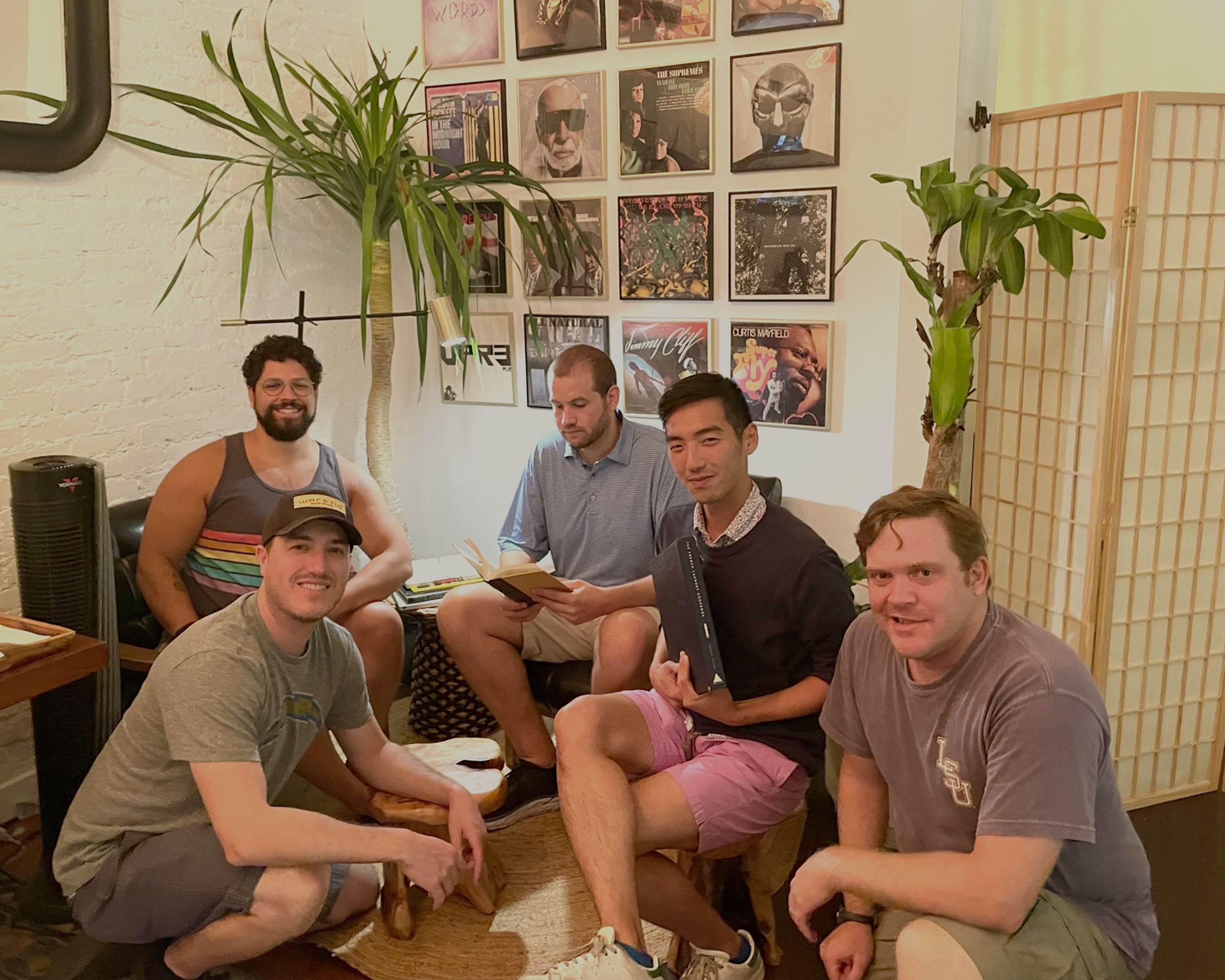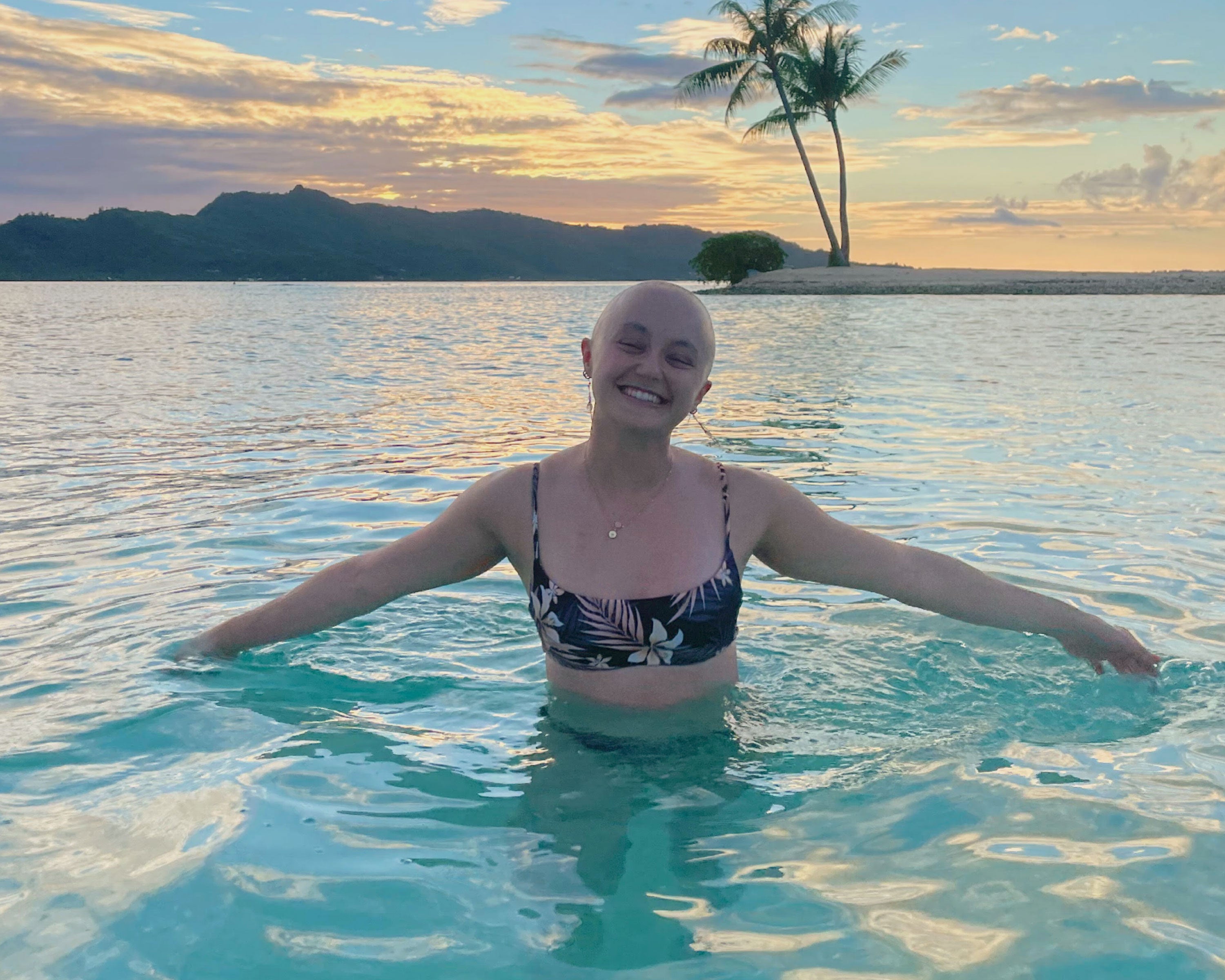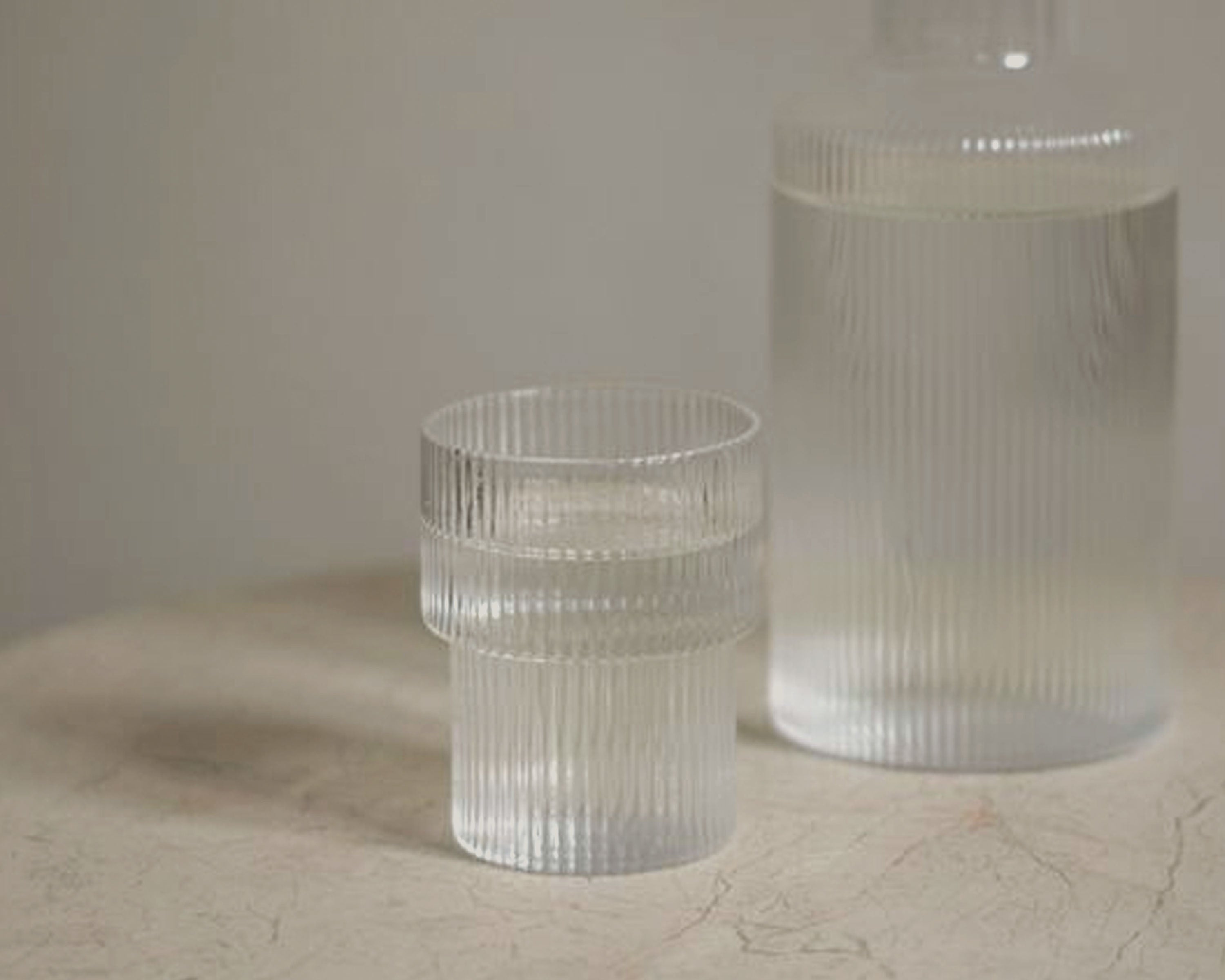One thing I have learned about myself is that by the time I’m trying to see a doctor for any reason, it’s usually weeks or months after I should have gotten checked out. We humans are really good at thinking, “Oh, maybe it will just go away.” That’s why it took me eight months to see a doctor about the very weird neurological issues I had started to notice.
I was 28 years old and in business school when these episodes started. Suddenly, I was having nights where I’d be out with classmates, have a drink, and shortly after would both look and feel like I was six drinks deep. I wouldn’t be able to control my facial expressions, would slur my speech, and my eyes would get very droopy. The scariest part was that I was completely lucid mentally, I just couldn’t control what I was physically doing. Friends would look and ask me, ‘Are you sure you’re okay?’ and I wouldn’t know what to tell them — how do you explain that you’re not drunk, you just have no idea what’s happening to your body?
It wasn’t until after I graduated and had started my new job that I finally made an appointment. When I saw my GP, I told him about the neurological stuff as well as a cough that was sticking around for a few weeks. I’ll never forget his words: “I'm going to schedule you for a chest CT scan but it's totally procedural. We never find anything in these things.” Sure enough, a couple of days later I got TheCall™ — the one where they ask you to come back into the office because the news is so bad they can’t tell you over the phone. I went in and learned they found a sizable mass in my chest.
As the pulmonologist was scheduling the biopsy, he turned and said to me, “If you haven't told your family yet, this is probably the right time, because we don't know that it's definitely cancer, but it's definitely not nothing. You’re going to require treatment for whatever this is. Now’s the time to let people know.” I had already told myself that whatever this “little issue” turned out to be, it was fine and I’d just deal with it on my own. I think I understood this subconsciously — that once I told anyone that mattered, I would no longer be able to pretend like everything was OK.
Not long after, they gave me the official diagnosis: I had a germ cell tumor. It took a few doctors to explain this to me, but the germ cell tumor is a form of testicular cancer — most germ cells migrate down to the testes as you age, but some are left in the chest area, which were the ones that had become cancerous in my case and why they’re classified as a testicular cancer. Even my cancer couldn’t be straightforward — just one more thing I had to add to my list of explanations as I told people what was going on!
On why being too independent can backfire when you have cancer
I look around and I see two basic camps of people: those who keep their cancer diagnosis to themselves and those who share pretty much every detail on Instagram. There is a happy middle place for me, but I didn’t figure that out until much later. I had this idea that not sharing was a great way to spare people from worrying about you. That’s true, but it’s also a great way to go through cancer alone without people to help you cope as you’re going through it.
I told only a small group of people about my diagnosis. It wasn’t until I was through treatment and in remission that I finally started telling a few more friends. My approach was along the lines of: “Hey, so I had this thing, but it should be all good now.” Looking back, I wouldn’t have wanted to broadcast my treatment schedule to everyone or give people daily status updates, but I do regret not telling more people when I was in the thick of it. I really deprived myself of a broader network of support. I was basically in my own little bubble, and the bubble only got smaller as my hair started falling out and I avoided people even more — which definitely took a mental toll.
On getting the caregiving help you need
I was really lucky that my parents came out here to San Francisco during my treatment, and stayed for a few months. My sister visited from New York a few times, too. But I was terrible at vocalizing what I wanted from them, mostly because I didn't know what I wanted. I know it’s tough for caregivers to guess what someone needs, so I really appreciated my mom’s ability to ask me questions. Even simple things like, “Do you want some space right now?” or, “Do you want a sandwich?” were really helpful to me. Somehow, responding to her questions was easier than just stating my needs.
On why saying the wrong thing to a cancer patient is better than saying nothing at all
The few friends that I did open up to checked in on me, and I appreciated that they didn’t shy away from talking to me about cancer. I think sometimes people are afraid they’re going to say the wrong thing, or worried that they’ll come across as insensitive, so they’ll avoid the person altogether. I’d much rather have someone say the wrong thing than tiptoe around me or not speak to me at all. It’s okay that people didn’t know the heck was going on. Just being curious, like, “Alan, what’s it like?” meant a lot to me. I also didn’t care if they brought me books I’d never read or candy I’d never eat — those small gestures meant so much. I had a friend suggest I binge watch Breaking Bad on Netflix "because, you know, chemotherapy" — which I thought was hilarious. (Spoiler alert: I had to stop after season 2 because it turned out I really didn’t want to see more chemotherapy while I was undergoing chemotherapy. Lesson learned.)
On ways to be genuinely helpful to someone going through chemotherapy
During each chemo cycle, the first week I’d go in for infusions that lasted eight hours a day, five days a week. Then during week two, I'd go in once for an hour-long treatment, and week three I was off. So obviously that was a lot of time. I tried to play video games, or read a book, to help pass the time, but you definitely get bored. By the end of chemo, I was completely done with Netflix. After four straight months, I couldn’t watch another episode! But apart from the mental stimulation I needed to overcome the boredom, one of the things I really appreciated was a good meal, like when someone stopped by with lunch. Sure, my appetite fluctuated, but I liked having real food even if I only ate three bites of it and I was done.
On the importance of keeping it real about your side effects
When people who are newly diagnosed ask me what they might need to know to get through treatment, I really don’t sugarcoat things. I’ll say, “So your white blood cells might plummet as a result of chemo. And if you’re like me, you’ll get a special patch that basically delivers a medication through your skin to help get the blood cells count up. But it hurts like a bitch to take off and makes you feel crappy afterward.” This was the kind of honesty I appreciated the most myself. I didn’t want people to say, “It's going to be okay, you have nothing to worry about.” Of course it’s helpful to know the facts about your specific type of cancer, and if it’s eminently curable or almost everyone gets through it, someone should tell you that! But you also want to know what to look out for and to be able to say, “Oh, this crappy thing that’s happening to me — it’s normal and I’m glad I know how someone else coped with it.”
On how cancer changes you for good
I wasn’t seeing a therapist during my treatment, but I did go to therapy later and that was really helpful — to process this whole period of my life and specifically to understand why I had such a hard time asking for help. Being a cancer survivor is part of my identity now, and I want the experience to help me live the rest of my life better. Otherwise, it’s just this thing that made a period of my life crappy.
Nobody getting a cancer diagnosis ever wants to hear that there’s going to be a silver lining. But at the same time, what happens to you — good or bad — is the only part of the experience that you can’t control. What you draw from it and how you react makes a world of difference — and I’ve come to see that I learned a lot from my battle with cancer that has positively affected my outlook on life and helped me think about things differently as I look ahead. That’s certainly not thanks to cancer; it’s a reflection of the wonderful people who reached out with gestures big and small, who told me and showed me that I mattered, who spent as much time worrying about me as I did myself. It’s the kind of caring that I wished I had reached out and asked for, and something that everyone can deliver to cancer patients in their orbit.
This article is for informational purposes only and is not a substitute for medical advice, diagnosis, or treatment. Please keep in mind every individual’s situation is different, and you should not take any actions concerning your body and well-being before consulting with a healthcare professional.
Let your loved ones know what you actually need
Easily add items from the Alula shop to your registry, and share it with friends and family who ask.



